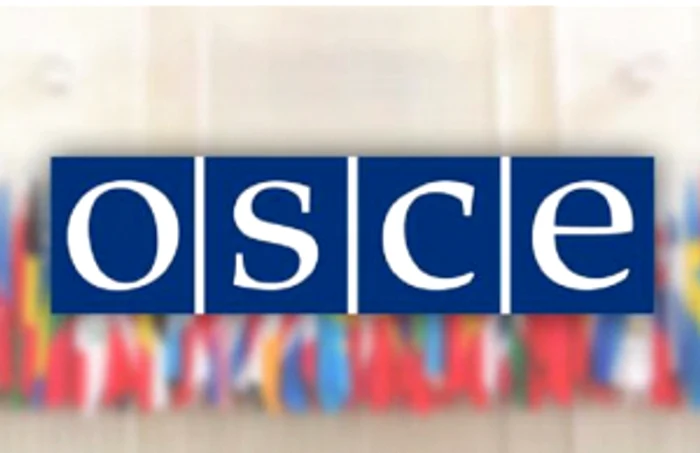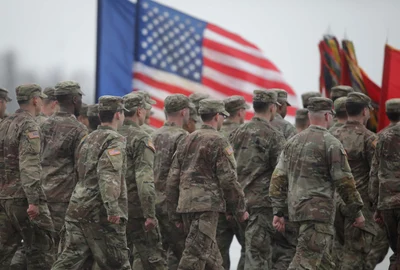Miza profundă a jocurilor: bomboana OSCE
0
Este o amarnică şi intensă confruntare de putere între actorii interesaţi nu numai de ce se întâmplă în diversele spaţii unde sunt puşi să se încaiere pionii fără importanţă ci, mai ales, de cine va fi oficial organizatorul procesului de pace care va redesena în următorii câţiva ani graniţele de securitate.
Şi este limpede că urmează o reorganizare masivă la acest nivel, fie a atribuţiilor organizaţiilor existente, fie provocând implozia acestora şi apariţia altora noi.
Cele mai multe negocieri sunt acum axate pe rolul viitor al OSCE, întrebarea fiind cât mai sunt de valabile şi operante principiile pe care a fost construită organizaţia şi care mai este capacitatea operativă a structurilor sale în momentul în care sunt puse să acţioneze în condiţii de conflict deschis.
Fundamentul construcţiei este perfect din punct de vedere teoretic: în 1973, Conferinţa pentru securitate şi cooperare în Europa (CSCE) a lansat dialogul multilateral est-vest în materie de cooperare şi securitate, aşa numitul "proces Helsinki", având drept punct culminant Actul finalal conferinţei de la Helsinki (1 august 1975). Cele 10 principii enumerate acolo sunt:
1) egalitatea între state suverane
2) refuzul ameninţării sau recurgerii la forţă
3) inviolabilitatea frontierelor
4) respectarea integrităţii teritoriale a statelor
5) reglementarea paşnică a diferendelor
6) neamestecul în treburile interne ale altor State
7) respectarea drepturilor omului şi a libertăţilor fundamentale, inclusiv a libertăţii de gândire, de conştiinţă, de religie şi de credinţă
8) egalitatea şi autodeterminarea popoarelor
9) cooperarea între State
10) respectarea cu bună-credinţă a obligaţiilor internaţionale.
Frumos dar, dacă vă uitaţi la ce înseamnă acum realitatea internaţională, parcă e o poveste de adormit copiii.
Dar a venit anul 1990 în care CSCE, în condiiile căderii comunismului şi încheierii Războiului Rece pe care, atunci, toată lumea (înşelându-se teribil de tare), îl credea irepetabil. Atunci politicienii entuziaşti au adoptat "Carta de la Paris pentru Noua Europă", începând să-şi creeze mecanisme ceva mai adaptate la noile realităţi printre care un Forum pentru cooperare în probleme de securitate, un Birou special destinat observăririi desfăşurării alegerilor, un Centru pentru prevenirea conflictelor, un Înalt Comisar pentru minorităţi, un Forum economic şi se dotează cu o serie de capacităţi operative pentru munca în teren. Plus un o Adunare Parlamentară proprie, plus o reprezentanţă specială pentru drepturile presei, sau Curtea de conciliere şi arbitraj. În 1994, CSCE se redumeşte ca OSCE, Organizaţia pentru securitate şi cooperare în Europa.
În 1999, la Istanbul, este adoptată Carta pentru securitate europeană iar în 2010, apare Declaraţia comemorativă de la Astana: către o comunitate de securitate.
OSCE este o organizaţie bazată pe diplomaţia preventivă, asta însemnând şi crearea unor grupuri speciale de mediere cum ar fi Grupul de la Minsk pentru Nagrno Karabach sau cel pentru Transnistria. OSCE are acum 57 de state membre care dispun de un statut egal, dar deciziile OSCE care se iau doar prin unanimitate de voturi nu sunt juridic obligatorii pentru Statele Membre.
Aceasta este limita de competenţe care face ca, în definitiv, OSCE să fie, în miojlocul tuturor tensiunilor extrem de acum, singura instituţie care ar avea toate mijloacele de solidă acţiune preventivă şi care ar putea face ceva dar care , pe fond, are doar un rol prestigios consultativ. Respectat şi ademirat de cine vrea şi când vrea.
Uitaţi-vă numai la acest atât de invocat Grup de la Minsk pentru rezolvarea situaţiei din Nagorno-Karbah. La reuniunea din 1992 de la Helsinki, Consiliul de atunci al OSCE a cerut preşedintelui în exerciţiu să convoace cât mai rapid posbil o conferinţă privind conflictul din zonă. Evenimentul a fost prevăzut să aibă loc la Minsk în ideea de a oferi un cadrul pentru rezolvarea paşnică a conflictului. În 1994, cu maximă celeritate diplomatică, Summitul de la Budapesta al CSCE a stabilit formarea "Grupului de la Minsk" care, de atunci, încearcă să facă ceva în ritmul a sute şi sute de reuniuni, din păcate cu succes zero.
Co-preşedinţii Grupului de la Minsk pentru Nagorno-Karabach sunt acum ambasadorii Igor Popov (Federaţia Rusă), Stephane Visconti (franţa) şi Andrew Schofer (SUA, iar membrii permanenţi ai grupului sunt Belarus, Germania, Italia, Suedia, Finlanda, Turcia, Armenia şi Azerbaidjan. Pe bază de rotaţie, şi Trica OSCE este un membru permanent. N-au putut însă face nimic şi a fost nevoie de medierea rusă care să-i cheme la ordine pe azeri şi armeni, obţinând un armistiţi (nu poate garanta nimeni cât este de fragil sau nu), destul de general, aveţi aici originalul în limba rusă şi traducerea neoficială în engleză:
⦁ A ceasefire is enacted as of 12:00 on October 10 2020 for humanitarian reasons to exchange prisoners and other detained persons as well as bodies of those who have perished, under mediation by and in accordance with the criteria of the International Committee of the Red Cross.
⦁ Concrete parameters of the ceasefire regime will be additionally agreed.
⦁ The Azerbaijani Republic and the Republic of Armenia, with mediation by the Co-Chairs of the Minsk Group of the OSCE and on the basis of the Basic Principles of regulation of the conflict, will enter into substantive negotiations with the goal of rapidly reaching a peaceful regulation of the conflict.
The sides confirm the immutability of the negotiating process’s format.
Foarte interesantă este menţionarea "Principiilor de bază" formulate de Grupul de la Minsk pe 10 iulie 2009, un document aproape uitat şi în orice caz încălcat de nenumărate ori (aveţi aici anunţul făcut de OSCE) şi fără ca, până acum, cineva să fi fost obligat să avansaze spre alt nivel real de negociere, ideea de "război îngheţat" fiind parcă un blestem acceptat de toţi.
Noutatea ar fi dacă referinţa respectivă ia în calcul la modul serios şi varianta de care se vorbaeşte la ultimul punct al documentului din 2009, adică garanţii internaţionale de securitate care să includă şi o operaţiune de menţinere a păcii.
Pomenirea acestei variante reprezintă, în sine, o deschidere posibilă care implică şi o o echivalenţă (imediată sau într-un orizont nu foarte îndepărtat) a acestui tip de misiuni în toate spaţiile în care OSCE a fost chemat să acţioneze de la Nagorno-Karabah până în Ucraina sau Belarus, nemaivorbind de operaţiunea din Transnistria. Importanţa mişcării este dată de posibilitatea de a se aduce un fel de rezolvare de urgenţă în teren prin acest tip de misiuni care - şi aici este cel mai apetisant dintre argumente - să nu trebuiască să fie făcut de "căştile albastre" ale ONU, ci de forţe militare sub comandamentul direct al OSCE sau, în acest caz precis, chiar al Grupului de la Minsk.
Dacă nu se va putea, dacă interesele vizând "coridorul strategic din Nagorno Karabach" vor fi prea mari, atunci este foarte posibil ca, peste două săptămâni sau chiuar mai devreme, luptele să izbucnească din nou. Iar Putin să fie rugat să intervină -eventual împreună cu Erdogan, stabilind premisele pentru o Conferinţă proprie de pace pe formatul întâlnirilor în trilaterala cu Iranul pentru Siria.
De ce ar face asta? Simplu. Pentru că este mult mai comod pentru Moscova, Ankara şi Teheran să creeze propriul lor teren de negociere dcât să se activeze protocoale de asistenţă militară Rusia-Armeni şi Turcia-Azerbaijan. Uitaţi-vă bine la ce prevede Tratatul de Securitate Colectivă, cu deosebire art.4 invocat de Armenia şi înţelegem cât de mare este pericolul unei nefuncţionări corecte a OSCE:
COLLECTIVE SECURITY TREATY, dated May 15, 1992
(as amended by the Protocol on amendments to the Collective Security Treaty of May 15, 1992, signed on December 10, 2010)
Member States being the parties to this Treaty, hereinafter referred to as the “Member States”, being guided by declarations on the sovereignty of the Independent States, taking into account creation by the Member States of own Armed forces, taking coordinated measures in the interests of collective security provision, recognizing the necessity of strict implementation of the signed treaties concerning reduction of armaments, Armed forces and trust strengthening, have agreed as follows:
Article 1
The Member States shall confirm the obligation to abstain from use of force or threat by force in the interstate relations. They shall undertake to settle all disagreements among themselves and other states by peaceful means.
The Member States shall not enter military alliances or take part in any groups of the states, as well as in the actions against other Member State.
In case of creation in Europe and Asia of a collective security system and conclusion for this purpose of treaties for collective security to what the negotiating parties will steadily aspire, the Member States will immediately start consultations with each other for the purpose of making necessary amendments to this Treaty.
Article 2
The Member States shall consult with each other on all important issues of the international security affecting their interests, and coordinate positions on these issues.
In case of menace to safety, stability, territorial integrity and sovereignty of one or several Member States or menace to international peace and safety of the Member States shall immediately launch the mechanism of joint consultations for the purpose of their positions coordination, develop and take measures for assistance to such Member States for the purpose of elimination of the arisen menace.
(the paragraph is as amended by the Protocol on amendments to the Collective Security Treaty of May 15, 1992, signed on December 10, 2010).
Article 3
The Member States shall form the Council for Collective Security consisting of the heads of the Member States.
(the article is as amended by the Protocol on amendments to the Collective Security Treaty of May 15, 1992, signed on December 10, 2010).
Article 4
If one of the Member States undergoes aggression (armed attack menacing to safety, stability, territorial integrity and sovereignty), it will be considered by the Member States as aggression (armed attack menacing to safety, stability, territorial integrity and sovereignty) to all the Member States of this Treaty.
In case of aggression commission (armed attack menacing to safety, stability, territorial integrity and sovereignty) to any of the Member States, all the other Member States at request of this Member State shall immediately provide the latter with the necessary help, including military one, as well as provide support by the means at their disposal in accordance with the right to collective defence pursuant to article 51 of the UN Charter.
The Member States shall immediately inform the United Nations Security Council on the measures taken on the basis of this article. When implementing these measures, the Member States shall adhere to the relevant provisions of the UN Charter.
(the article is as amended by the Protocol on amendments to the Collective Security Treaty of May 15, 1992, signed on December 10, 2010).
Article 5
Coordination and ensuring of joint activity of the Member States according to this Treaty shall be provided by the Council for Collective Security of the Member States and the bodies created by the Council.
(the article is as amended by the Protocol on amendments to the Collective Security Treaty of May 15, 1992, signed on December 10, 2010).
Article 6
Resolution on use of forces and means of collective security system according to articles 2 and 4 of this Treaty shall be adopted by the heads of the Member States.
Use of forces and means of the collective security system outside of the territory of the Member States may be carried out only in the interests of the international security according to the UN Charter and the laws of the Member States being parties hereto.
(the article is as amended by the Protocol on amendments to the Collective Security Treaty of May 15, 1992, signed on December 10, 2010).
Article 7
Placement and functioning of objects of the collective security system in the territory of the Member States shall regulated by special agreements.
Article 8
This Treaty shall not affect the rights and obligations under other existing bilateral and multilateral treaties and the agreements concluded by the Member States with other states, and is not intended against the third countries.
This Treaty shall not affect the right of the Member States to individual and collective defence against aggression according to the United Nations Charter.
The Member States shall undertake not to conclude international treaties incompatible with this Treaty.
Article 9
Any questions which may arise between the Member States concerning interpretation or application of any provision of this Treaty shall be settled jointly, in the spirit of friendship, mutual respect and understanding.
Amendments hereto may be made at the initiative of one or several Member States and adopted on the basis of the mutual consent.
Article 10
This Treaty shall be open for accession of all interested states sharing its goals and principles.
Article 11
This Treaty is concluded for five years with following prolongation.
Any of the Member States shall have the right to withdraw from this Treaty if it informs other members on its intention not later than six months prior to withdrawal and fulfils all the obligations following the withdrawal from this Treaty.
This Treaty shall be subject to ratification by each state which has signed it according to its constitutional procedures. Instruments of ratification shall be transferred for storage to the Secretary General of Council for Collective Security (of the Collective Security Treaty Organization), hereby appointed as the depositary.
(the paragraph is as amended by the Protocol on amendments to the Collective Security Treaty of May 15, 1992, signed on December 10, 2010).
This Treaty shall take effect immediately after delivery of the instruments of ratification to storage by the Member States which have signed it.












































